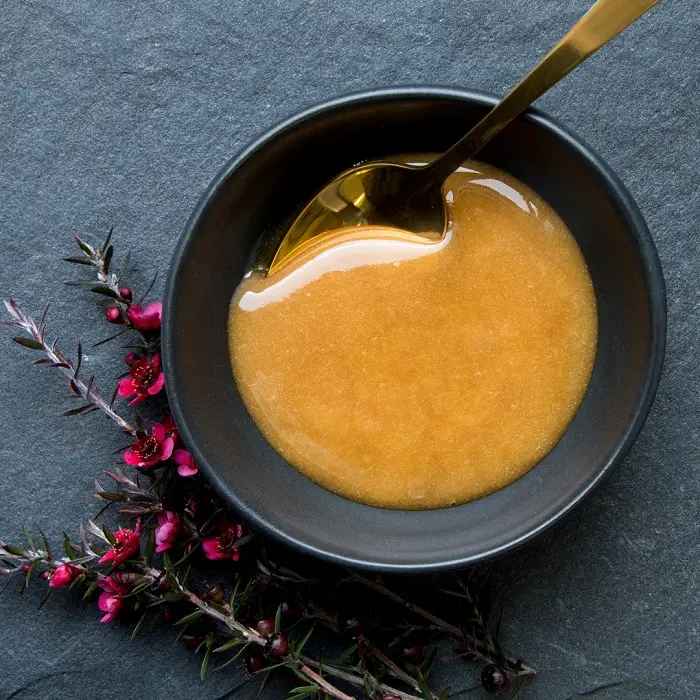The many health benefits of manuka honey are supported by over 9,000 scientific research papers, supporting manuka’s unique composition and bioactivity. At Comvita, we lead the way in creating and understanding the science behind manuka honey. Over the last two decades, Comvita scientists and research collaborators have authored many research papers, reports and articles on manuka honey. We’re committed to continuing to push the boundaries of scientific research on manuka to understand more about what makes this type of honey so special.
The benefits of honey have been recognised since its use by ancient civilisations, and modern research has shown that the health benefits associated with traditional uses of honey are more than just folklore.
MANUKA HONEY, sourced from the New Zealand native shrub Leptospermum scoparium, exhibits a combination of bioactive properties, which give it unique benefits beyond just culinary use.
The many benefits of manuka honey are partly due to its antibacterial properties, while there’s also research into its various topical uses, such as in wound care, and treating burns, eczema and dermatitis.
Manuka can also help to give you an extra boost in the chilly winter months. Manuka honey can also be used to help support gut health.


In manuka honey’s native New Zealand, the Ministry for Primary Industries (MPI) enforces a scientific regulatory definition for exported manuka, which is based on chemical fingerprinting and the analysis of pollen DNA markets.
Scientists, including Comvita scientists, have also pioneered the discovery and use of other compounds unique to manuka honey, including:
These compounds are used to authenticate the purity and quality of manuka honey.
Learn more about MGO AND MANUKA HONEY.
Add manuka honey to beverages such as tea, where it can act as a delicious, natural sweetener.
Alternatively, you can take manuka honey as a food on its own, to benefit from its many properties.

We’re sorry, the page you requested could not be found.